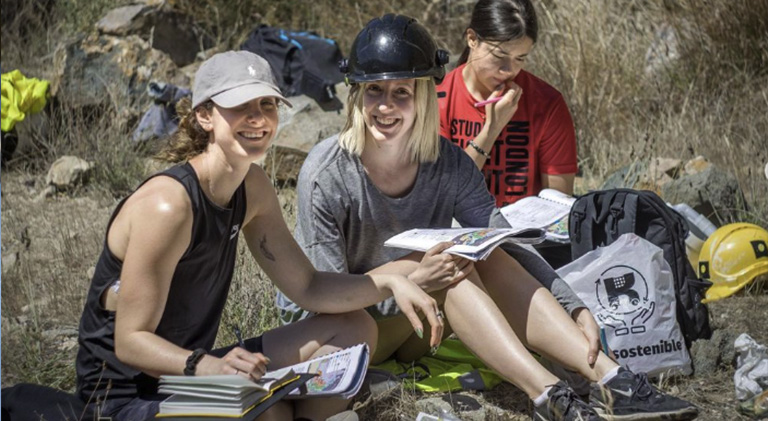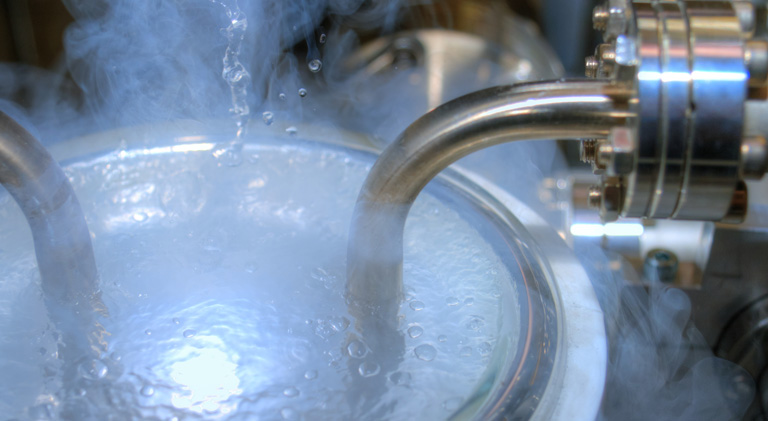Departmental Newsletter Spring 2023
Student Experience: Spotlight on Amy Perrio
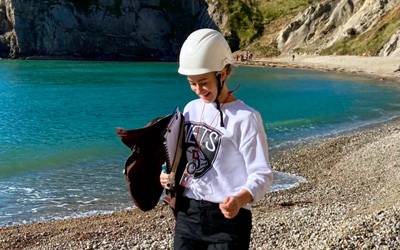
I find it fascinating to to try and piece together the stories of mineral formation and how these can relate to potential biosignatures.
Meet the Staff: Welcome new academic staff
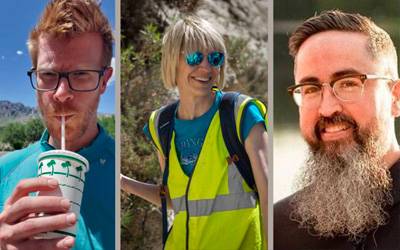
A warm welcome to our newest academic staff: Byron, Frances and Thomas. We are delighted to have you join our department!
PhD News: UCL-Yale doctoral exchange
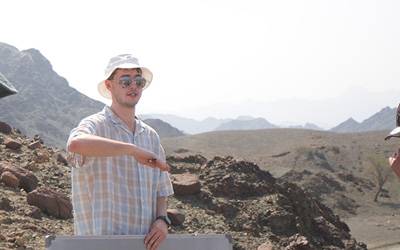
It was an excellent opportunity to learn a lot about my study area, and see how other researchers operate at a different institution.
Alumni Profile: Dr William Davis, class of 2017
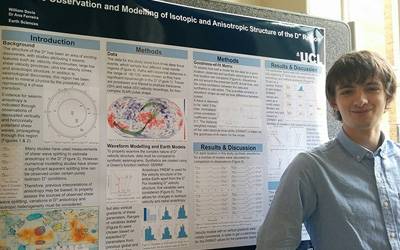
Coming in as a student with a passion for mathematics and geology, I found that the course material & guidance at UCL enabled me to discover my intellectual niche which I’m still pursuing today.
Research: Expedition to remote island’s lava lake
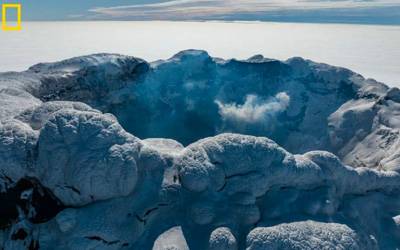
“The Mount Michael on a sub-Antarctic island hosts a persistent thermal anomaly at its summit. A hotspot much hotter than the surrounding area.
Research: What can deep-sea devices "hear"?
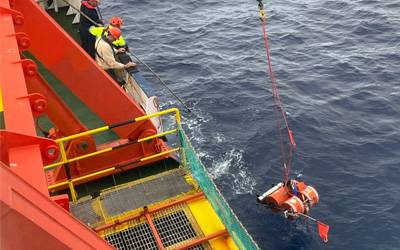
The seismometers placed at the bottom of the ocean, record the Earth’s ground motions on the sea floor and thus capture the Earth’s “pulse”.
Equality: Mindful Scholar event
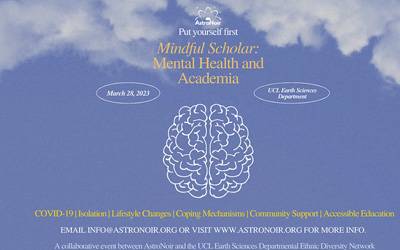
This thought-provoking gathering brought together a diverse group of individuals from various backgrounds, including students, professors, and industrial professionals.
Events: John Bowles' retirement
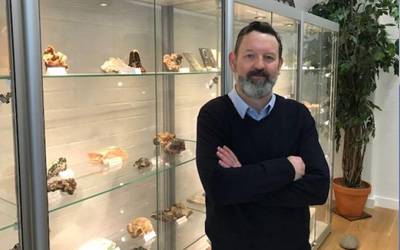
We mark the end of an era as we say goodbye to John Bowles who is leaving us after working at UCL for 38 years to enjoy a well-deserved early retirement.
Awards: Prof Pieter Vermeesch & Climate Action Unit
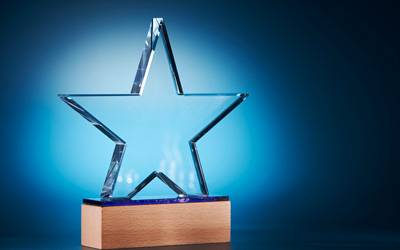
Pieter Vermeesch was recognised for Excellence in Research in Mathematical Petrology. The Climate Action Unit has become a finalist for UK Green Business Awards.
Update from Prof Paul Upchurch, Head of Department.
This will be my last contribution to the Departmental Newsletter, at least in my capacity as Head of Department. I will be stepping down from this role at the end of August and handing over to Professor Lidunka Vocadlo. Looking back on the past five years, I can see that the Department has gone through yet another phase of transformation.
Under the previous HOD, Lars Stixrude, we were focused on the refurbishment of the Kathleen Lonsdale Building and ultimately bringing all staff and students together in one place. We all still appreciate these facilities and enjoy our state-of-the-art teaching and research labs, social hub spaces and so on. But the transformation we have undergone during the past five years has been more focused on people than facilities (although we have managed to spend at least £2 million on the latter in that time). During my tenure as HOD, we have seen a major turnover of academic staff driven largely by retirements, resulting in 50% of our current academic staff having been appointed since 2018. While we appreciate the dedication and long service of our retiring staff (many of whom I am glad to say are staying with us in the form of emeritus professors), it is also interesting and exciting to bring new people into the organisation and develop fresh ways of thinking. Part of our strategy has been to focus on the issues that are of greatest importance to our students and to society more widely, and therefore we have invested strongly in areas such as environmental geosciences, hazards, climate, and sustainable earth resources, during these hiring rounds. Another longer term trend, which I have been very pleased to oversee and encourage, is the growing importance of equity, diversity and inclusion. We have set up a number of staff and student networks in the Department, and receive funding to help us decolonise our curriculum an provide kits of field equipment in order to remove barriers experience by students from socio-economically under privileged backgrounds. And talking of the latter, we have also increased the number of “access students, we take, and preliminary data suggest that these students are doing as well academically as any others.
More recently (i.e., since the last Newsletter) there have been a number of further developments and success stories. We have recently hired a new Lecturer (Teaching) in Environmental Geoscience is, and we are currently searching for another Lecturer (Teaching) who will, among other tasks, be taking over the undergraduate tutor role in order to provide students with even more support. In the past six months, several staff have achieved success with major grant or fellowship applications, including Byron Adams, Nicolas Brantut, Paul Bown, David Dobson, Philip Mannion, Emma Nicholson, and Rosemary Willatt. Emma Nicolson has also run a new fieldtrip to the Azores for our MSc in Geohazards – this went extremely well and provides a fantastic opportunity to bring together theoretical, practical, and field, knowledge to create a holistic overview of the relevant topics. Finally, we have recently completed a review of our technician support, and I’m pleased to report that we will be hiring in key areas soon, which again will enhance both the research and teaching of the Department and hopefully ease some workload issues.
To me, if feels like the Department is thriving and that I can hand it over to Lidunka with the Department well-positioned for the future. I wish Lidunka all the best while she is Head of Department, and I’m looking forward to seeing what innovations and improvements she will bring. I’d like to end by thanking all those people in the Department who have helped support me during my time as HOD. It is well known that the HOD role has a very heavy workload, a great deal of responsibility, and comes with a fair few difficult conversations and stressful moments. Without the support of my technical, professional services, and academic colleagues, the role would have proved impossible, especially during the additional problems created by Covid. Since my decision to step down, I have received many messages of support and thanks from staff and students, and I would like to let everybody know that these are greatly appreciated.
 Close
Close


